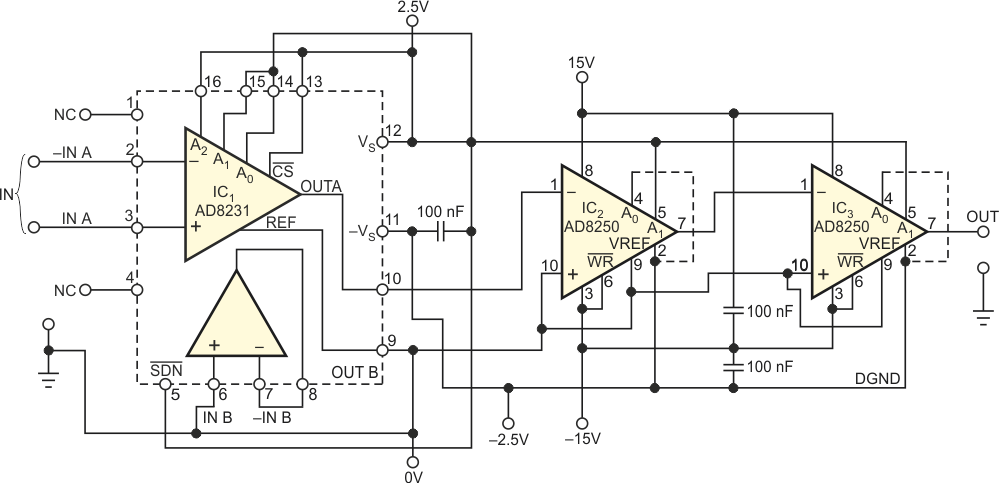Marián Štofka
EDN
Analog Devices’ digitally gain-programmable AD8231 instrumentation amplifier exhibits zero offset. It has programmable voltage gains, which are successive powers of two, from 20 = 1 to 27 = 128. The AD825x family also includes some digitally gain-programmable instrumentation amplifiers, which have gain expressed as powers of 10. These amplifiers contain no internal autozero circuitry, however. The composite instrumentation amplifier in Figure 1 suits applications requiring instrumentation amplifiers having voltage gains of a multiple of 10 and requiring low voltage offset, drift, and low-frequency noise.
The design exploits the fact that the gain is 10M, where M is an integer, which you can express as 10M = 2M × 5M. The circuit in Figure 1 employs a cascade of the autozeroed AD8231 instrumentation amp, IC1, with a preset voltage gain of eight, IC2, and IC3. The net result is that the input-voltage offset of IC2 causes an RTI (referred-to-input) voltage offset, which decreases by a factor of eight compared with an offset of a stand-alone circuit, IC2. The same holds also for the offset-voltage drift. The auto-zeroing circuitry of the IC1 decimates the low-frequency noise.

